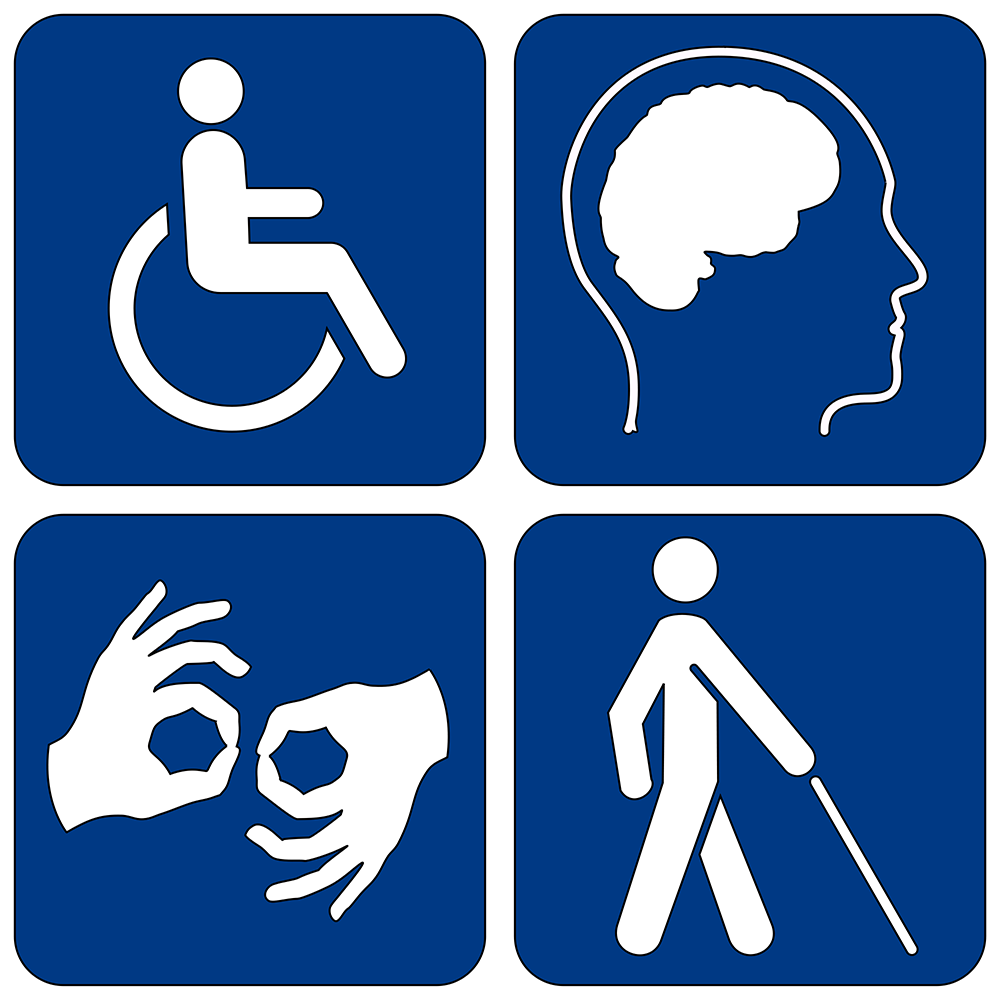Americans with Disabilities Act
Americans with Disabilities Act
The Americans with Disabilities Act, Public Law 336 of the 101st Congress, enacted July 26, 1990, prohibits discrimination and ensures equal opportunity for persons with disabilities in employment, State and local government services, public accommodations, commercial facilities, and transportation. It also mandates the establishment of TDD/telephone relay services.
The titles are as follows:
*Title I of the ADA prohibits discrimination against persons with disabilities in employment by businesses having 15 or more employees, or by State and local governments. Title I with respect to private employers is enforced by the Equal Employment Opportunity Commission (EEOC).
*Title II of the ADA prohibits discrimination against persons with disabilities in State and local government services, programs, and activities. All programs, services, and activities of State or local governments are covered. These include public education and social service programs, State legislatures and courts, town meetings, police and fire departments, motor vehicle licensing, employment services, and public transportation programs. State and local governments must operate their programs so that, when viewed in their entirety, they are readily accessible to and usable by people with disabilities. They must provide programs and services in an integrated setting, unless separate or different measures are necessary to ensure equal opportunity, and must eliminate unnecessary eligibility standards or rules that deny individuals with disabilities an equal opportunity to enjoy their programs or services. State and local governments must also make reasonable modifications in policies, practices, and procedures and provide effective communication through the use of auxiliary aids and services when necessary to ensure equal access for individuals with disabilities, unless an undue burden or fundamental alteration would result. When State or local governments design and construct new facilities, or alter existing facilities, they must do so in accordance with standards for accessible design adopted under the ADA. Title II (other than transportation) is enforced by the U.S. Department of Justice (DOJ). The U.S. Department of Transportation enforces the provisions of title II relating to public transportation services.
*Title III of the ADA prohibits discrimination against persons with disabilities in places of public accommodation and commercial facilities. Places of public accommodation include over 6 million privately owned business establishments of all sizes such as restaurants, hotels, theaters, convention centers, doctors offices, retail stores, museums, libraries, private schools, health spas, and day care centers. Commercial facilities are businesses whose operations affect commerce, such as office buildings, factories, and warehouses. Public accommodations must: provide goods and services in an integrated setting, unless separate or different measures are necessary to ensure equal opportunity; eliminate unnecessary eligibility standards or rules that deny individuals with disabilities an equal opportunity to enjoy the goods and services of a place of public accommodation; and make reasonable modifications in policies, practices and procedures that deny equal access to individuals with disabilities, unless a fundamental alteration would result in the nature of the goods and services provided. They must also ensure effective communication through the use of auxiliary aids and services when necessary, unless an undue burden or fundamental alteration would result. They must remove architectural and structural communication barriers in existing facilities where readily achievable, and provide goods and services through alternative measures when removal of barriers is not readily achievable. When public accommodations or commercial facilities design and construct new facilities, or alter existing facilities, they must do so in accordance with the Standards for Accessible Design. Title III is enforced by the U.S. Department of Justice.
*Title IV of the ADA mandates that telephone companies offer TTY/telephone relay services to enable individuals who use TTY’s.
*Title V of the ADA includes a provision prohibiting either (a) coercing or threatening or (b) retaliating against the disabled or those attempting to aid people with disabilities in asserting their rights under the ADA.
*Information from the ADA Homepage at www.usdoj.gov/crt/ada
** Information from the JAN Homepage at www.jan.wvu.edu
